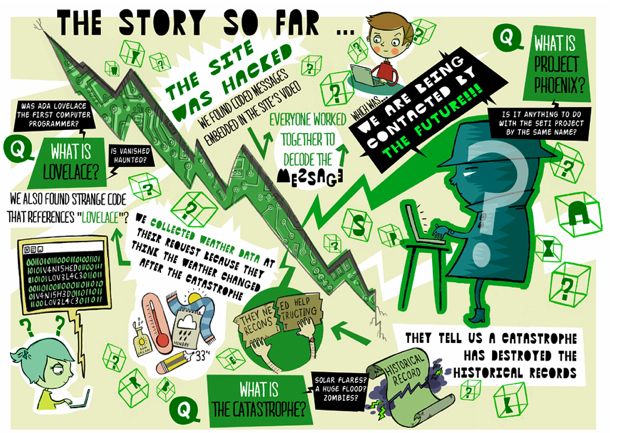"As game designers," MIT's Scot Osterweil says, "we're convinced that game playing is a lot like science: There is problem-solving, exploration, collaboration, hypothesizing, testing and learning from your failures.”
Osterweil, research director of MIT’s Education Arcade, is one of the masterminds behind a new science game made for the Smithsonian Institution. The game is a National Science Foundation-funded experiment in "alternative science education."
Over many years, after conducting many surveys, the NSF made an intriguing conclusion: A good deal of the public's understanding of science derives from outside of the classroom. NSF developed a program in "Informal Science Education," and Osterweil's team--jointly housed by MIT's Comparative Media Studies program and its Scheller Teacher Education Program--nabbed an NSF grant to work on a game, back in 2009. Two years later, more than 5,000 students are playing the game, Vanished, and leaving about 4,000 posts a day on the sites forums.
The game will last for two months, and unfolds like a narrative. (Osterweil promises "surprising plot twists" ahead--take that, 9th-grade chem lab!) MIT describes the overarching conception of the game this way:
"The premise is that people living in the future have contacted us in the present, to answer a question: What event occurred between our time and theirs that led to the loss of civilization’s historical records? Students must decode clues in hidden messages, and in response find and provide information about Earth’s current condition, such as temperature and species data, to help people in the future deduce what wound up happening."
Later in the month, students will have the opportunity to video chat with practicing scientists. For students in the vicinity of a Smithsonian-affiliated museum (17 of which are around the country), visits to those museums can help yield clues to progress in the game/lesson.
In case you didn't get the memo, games are making all kinds of staid or serious things sexy and downright fun now, from business training to dusty libraries to human rights to health care. Gamification is certainly a trend, and MIT has some pleasing numbers to show for their game thus far--but will it be a lasting one?
Follow Fast Company on Twitter. Email David Zax, the author of this post, or follow him on Twitter.
Monday, 25 April 2011
MIT Creates The One Video Game You'll Be Thrilled To See Your Kid Get Hooked On | Fast Company
via fastcompany.com
